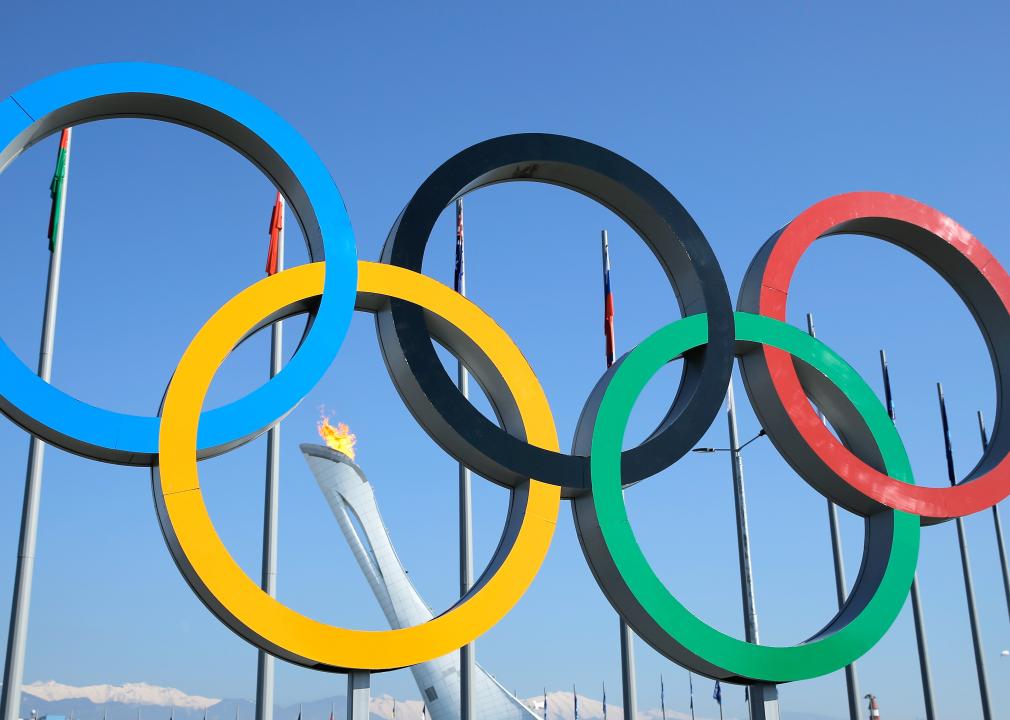10 of the most expensive Olympic Games in history
Scott Halleran // Getty Images
10 of the most expensive Olympic Games in history
Olympic Rings are seen under the Olympic Cauldron inside Olympic Park.
The Olympics is the biggest sporting event in the world. OLBG consulted an analysis from the Council on Foreign Relations to determine which countries have hosted some of the most expensive Olympic Games in history.
When the first modern Olympic Games began in 1896, many countries—both emerging and wealthy—could publicly afford the event. However, over the decades, flashy host city proposals and higher athlete participation have led to ballooning costs of the Games. It has now come to a point where only wealthy countries can incur that expensive of an event. Even still, many countries carry large amounts of debt years after the Games are over. Notably, Montréal’s taxpayers continued to pay the debt from its 1976 Summer Olympics three decades after the last of the athletes left town.
It’s estimated that the cost of hosting the Olympic Games from 1896 to 2016 increased 200,000%, according to Time magazine. Still, only 251 athletes competed in 1896 compared to over 11,000 in Tokyo.
Though there is no denying that hosting the Olympic Games can catapult a city’s fame and reputation, the costs are increasingly onerous, and residents are pushing back more and more, so much so that, in 2017, the International Olympic Committee awarded the 2028 Summer Games to Los Angeles without calling for other bidders—a telltale move of the Games’ diminishing allure. In comparison, 11 cities submitted their applications to host the 2004 Olympic Games and 10 cities bid for 2008’s edition, while 9 cities did so for 2012.
Meanwhile, five potential host cities for the 2022 Winter Olympics withdrew their bids after voter referendums or polling showed a lack of support, according to the Georgetown Journal of International Affairs.
So which cities gave it their all (including most of their budgets) for the chance at Olympic glory?
![]()
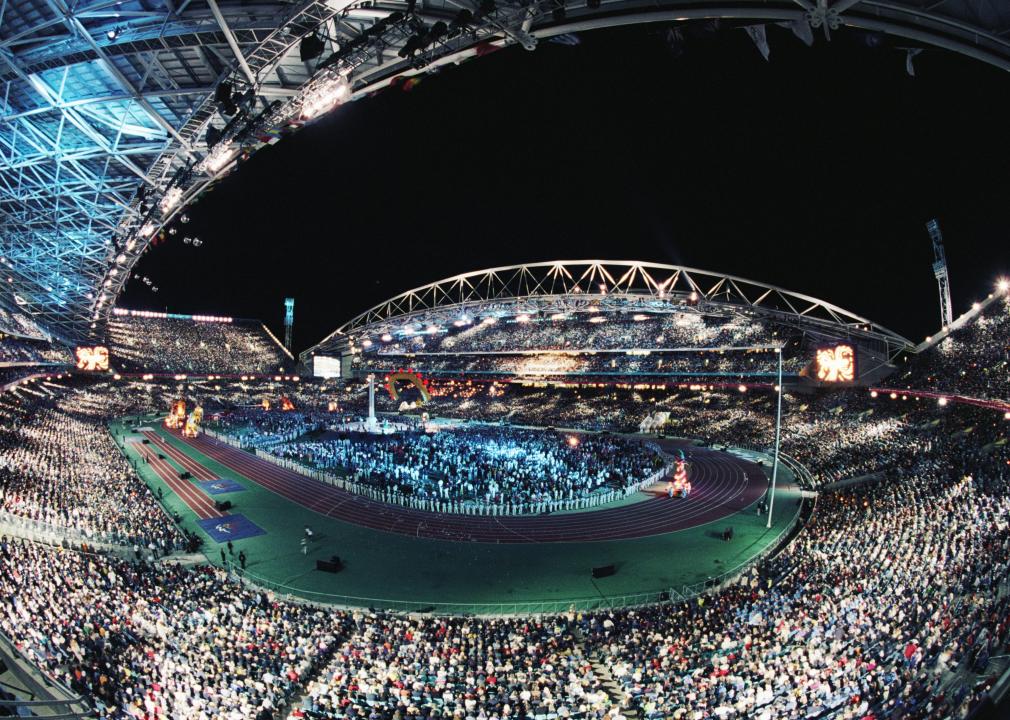
Philippe Caron // Getty Images
#10. 2000 Sydney Summer Games
The closing ceremony of the 2000 Summer Olympic Games in Sydney.
Cost (in 2021 dollars): $8.1 billion
The 2000 Sydney Olympics occurred in the last decade of the 20th century while the world grappled with globalization. As host to the prestigious Games, the city was able to frame itself as an up-and-coming location able to keep up with rapid change, but the results have been mixed.
Sydney used the Olympic Games to center renewal environmental efforts rather than the traditional industrialization and pollution that had become synonymous with the Games. One of its most visible efforts included cleaning Homebush Bay, a waste dump, and turning it into the Sydney Olympic Park. It also led to the country’s first urban water recycling system on a wide scale, estimated to save 850 million liters of drinking water annually.
On the other hand, a 2007 modeling effort found that household and government consumption declined $2.1 billion between 1997 and 2005 due to the city’s participation in the Games.
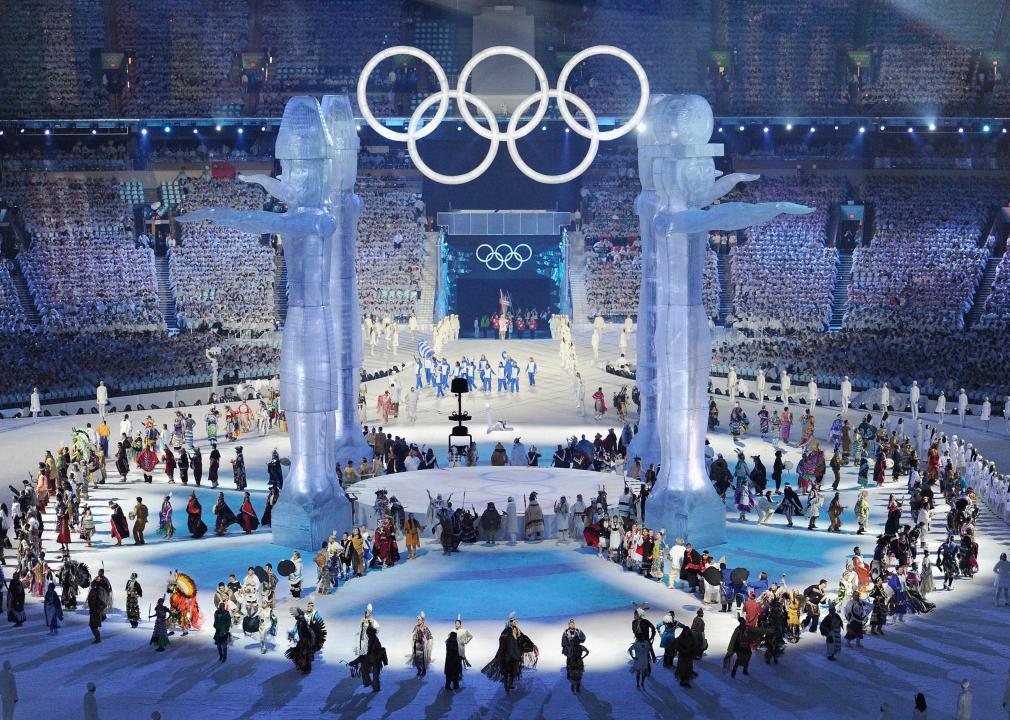
Kevork Djansezian // Getty Images
#9. 2010 Vancouver Winter Games
Opening ceremony of the 2010 Vancouver Winter Olympics.
Cost (in 2021 dollars): $8.9 billion
In 2003, voters in Vancouver voted to accept their 2010 Winter Olympics bid if they were awarded it. A few months later, that became a reality with Vancouver, Canada, beating out Pyeongchang, South Korea, and Salzburg, Austria.
As the Games approached, concern over the weather hovered. While Vancouver in February was known as a winter wonderland, in 2010, it averaged 50 degrees. Organizers around the clock brought in truckloads of snow to cover the competition slopes.
Despite the obvious difficulties of hosting and natural challenges to overcome, Vancouver ended the Games debt-free, which is still a rarity. The Olympics boosted British Columbia’s gross domestic product by $2.3 billion (British Columbia is the province where Vancouver sits). It also created 45,000 jobs and added $1.1 billion in private contracts for local businesses, Canada’s Ministry of Finance reports based on a PricewaterhouseCoopers study.
All of the facilities used during the Games are still in use. Notably, the Richmond Speed Skating Oval—used for hockey, speed, and ice skating competitions—is a community fixture that receives over half a million visitors annually.
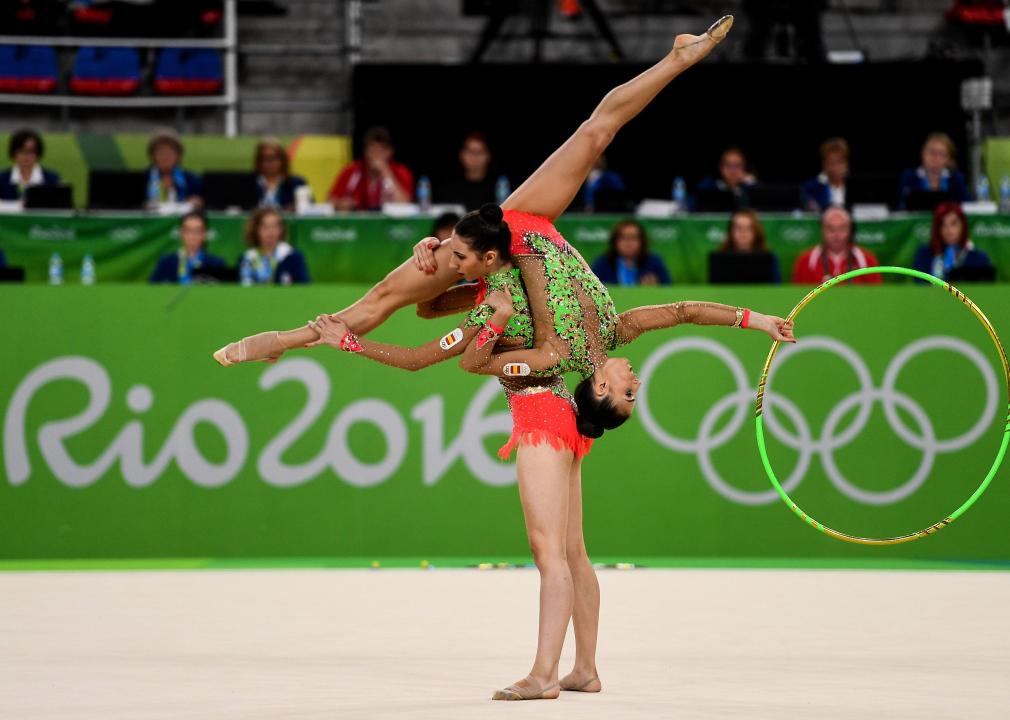
Ramsey Cardy // Getty Images
#8. 2016 Rio de Janeiro Summer Games
The Spain team competing during the Rhythmic Gymnastics Group All-Around Final.
Cost (in 2021 dollars): $13 billion
When Rio de Janeiro was awarded the 2016 Olympic Games in 2009, it was an opportunity to show the world Brazil’s growth and international influence. Luiz Inácio Lula da Silva, Brazil’s president at the time, sold the Games to the public to modernize Rio de Janeiro and provide economic and job growth to the city.
While some jobs came, low-income families were displaced to build facilities and housing for the Games. According to a 2021 study, roughly 77,000 people were displaced from 2009 to 2016, which had a lasting impact on the city.
The consequences of gentrification on Olympic host city communities have always been a hot-button issue. Still, after Rio de Janeiro, it sparked a debate on whether the Games are truly worth it, particularly to locals.
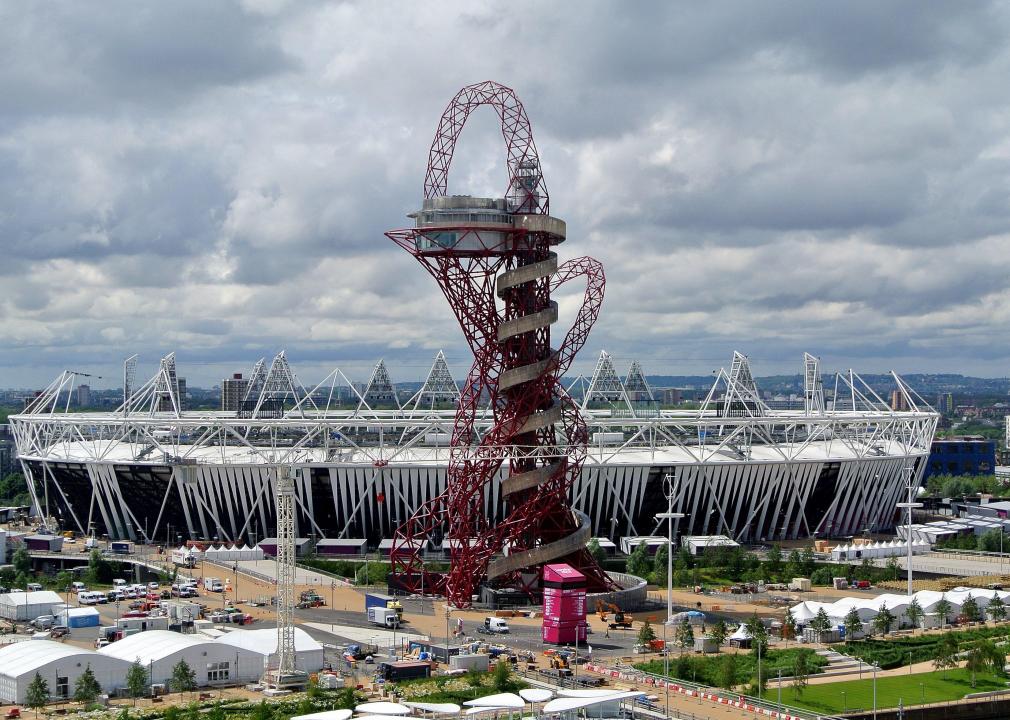
Steve Rose // Getty Images
#7. 2012 London Summer Games
A general view of the the ArcelorMittal Orbit sculpture standing.
Cost (in 2021 dollars): $13.3 billion
London’s theme for its 2012 Olympic bid was “a model for social inclusion.” Still, like Rio de Janeiro, Londoners were promised economic development and housing, particularly for low-income families, which never fully arrived.
“It feels like a massive betrayal,” Paul Amuzie, a local east London resident, told The Guardian in 2022. Amuzie initially supported the Games’ presence because of what it meant for affordable housing in a part of London ravaged by crime and other neglect.
During its Olympic development efforts, the city promised to build up to 40,000 affordable housing units around Olympic Park. However, 10 years later, according to The Guardian, less than half of those units were built.
On the bright side, London’s Olympic Park continues to attract over 1 million visitors a year, and over 110,000 jobs were created, according to the IOC.

Daniel Karmann // Getty Images
#6. 2018 Pyeongchang Winter Games
Canada’s Kimberley McRae in action at the women’s luge singles at the Alpensia Sliding Centre in Pyeongchang, South Korea.
Cost (in 2021 dollars): $15.4 billion
Like many Olympic hosts, the cost of the Pyeongchang Games became a flashpoint. South Korea’s debt is more than half the country’s economic size, inflaming fears similar to other Olympics that hosting the Games wouldn’t be worth it.
The surge in cost was scrutinized, with particular attention to a new high-speed rail that connected travelers to Seoul in less than two hours and the Olympic stadium, which seated 35,000 spectators but was only used four times throughout the Games.
Still, the Olympic bid introduced Pyeongchang, which The New York Times has characterized as a “mountain backwater that produced potatoes and cattle,” to the world and put a physicality to a location known just for being too close to the shared border with North Korea.
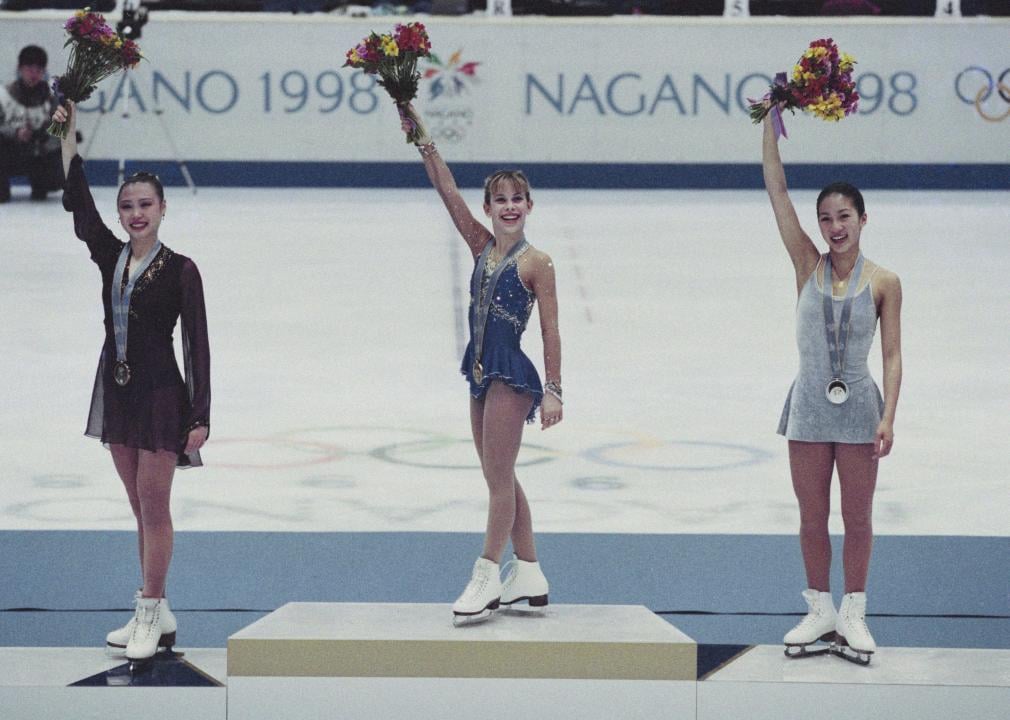
Jamie Squire // Getty Images
#5. 1998 Nagano Winter Games
Bearing the gold medal on the Olympic podium, Tara Lipinski of the United States (center) raises her arm with a bouquet of flowers alongside silver medalist Michelle Kwan (right) and bronze medallist Chen Lu of Chin.
Cost (in 2021 dollars): $17.9 billion
Like many Olympic host cities, the price tag began to exceed the initial budget leading up to the Nagano Winter Games. The local mayor at the time, Tasuku Tsukada, defended a 20% jump in the initial budget over criticism that excessive spending on venues wouldn’t be worth it because they would be abandoned after the Games. “There is no need for concern,” he told The Washington Post then. “The facilities will be put to sufficient use.”
The Games gave Nagano an opportunity to upgrade its ski resorts and infrastructure, elevating the city as a key winter sports destination in the world. Notably, the extension of the bullet train decreased the travel time between Tokyo and Nagano from three hours to a mere 80 minutes.
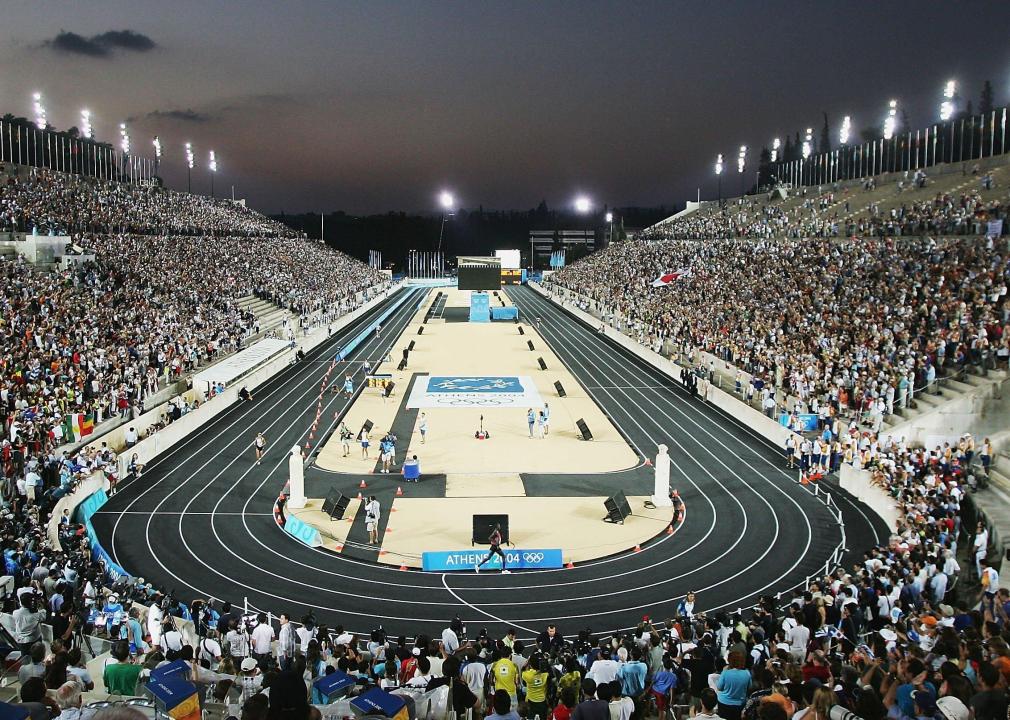
Michael Steele // Getty Images
#4. 2004 Athens Summer Games
Runners enter the stadium and near the finish during the men’s marathon.
Cost (in 2021 dollars): $18.7 billion
Athens is the birthplace of the Olympics, and the 2004 Games made sure to incorporate that theme. From the olive wreaths the athletes wore on the podium to the cultural acknowledgment of the Spyros Louis Stadium to the Ancient Greece stadium of Olympia, fans walked away with a lot of cultural awareness from the Games.
However, 20 years later, it’s hard to tell how culturally significant the 2004 Games were. Most of the venues built for the Games were abandoned, and their derelict condition has been attributed to Greece’s debt crisis.
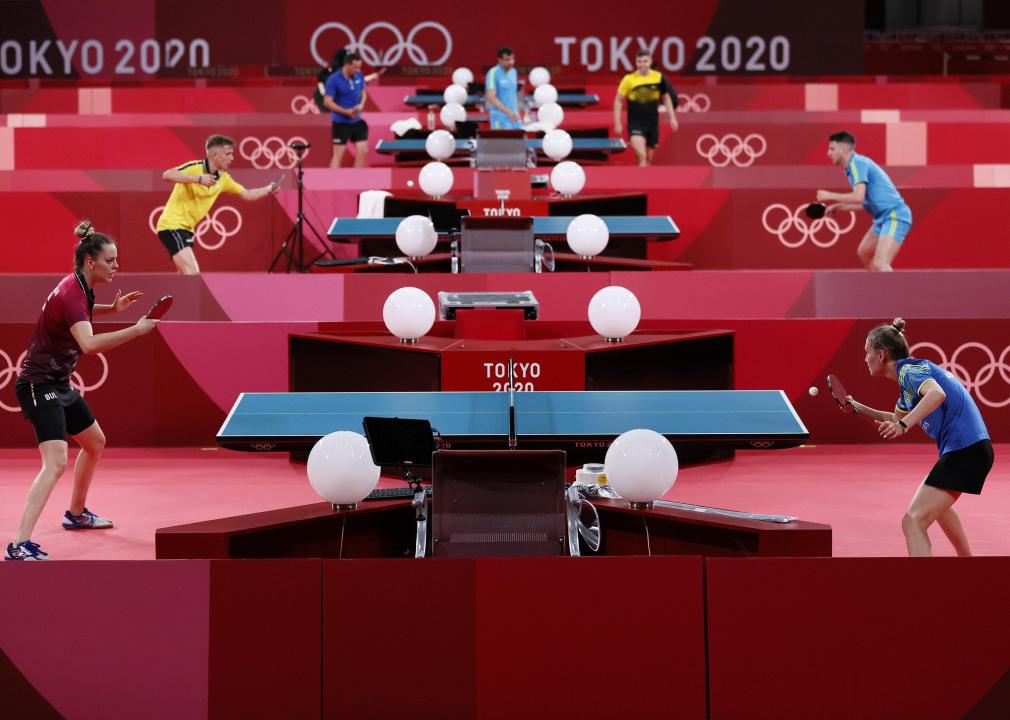
Steph Chambers // Getty Images
#3. 2020 Tokyo Summer Games
A general view of at Tokyo Metropolitan Gymnasium as table tennis players practice.
Cost (in 2021 dollars): $35 billion
When Tokyo was selected in 2012 to host the 2020 Olympic Games, it was an exhale moment for Japan. After losing its 2016 Olympic bid, it finally could present to the world a message that then-Prime Minister Shinzo Abe wanted to convey, “Japan is back,” echoing its 1964 message as host of the Games following a rebuild after World War II. In 2020, Abe wanted to showcase Japan’s cutting-edge infrastructural and economic advancements. Still, nobody could have foreseen the backdrop of that success would be a global pandemic, scandals and resignations, a disgruntled public, and a delayed Games.
The Games were initially supposed to cost $7.3 billion, according to The New York Times, but ended up costing over $15.4 billion, with private companies injecting an additional $3 billion into the operation. Most local businesses didn’t benefit because of COVID-19 fears and limited tourist or fan attendance.
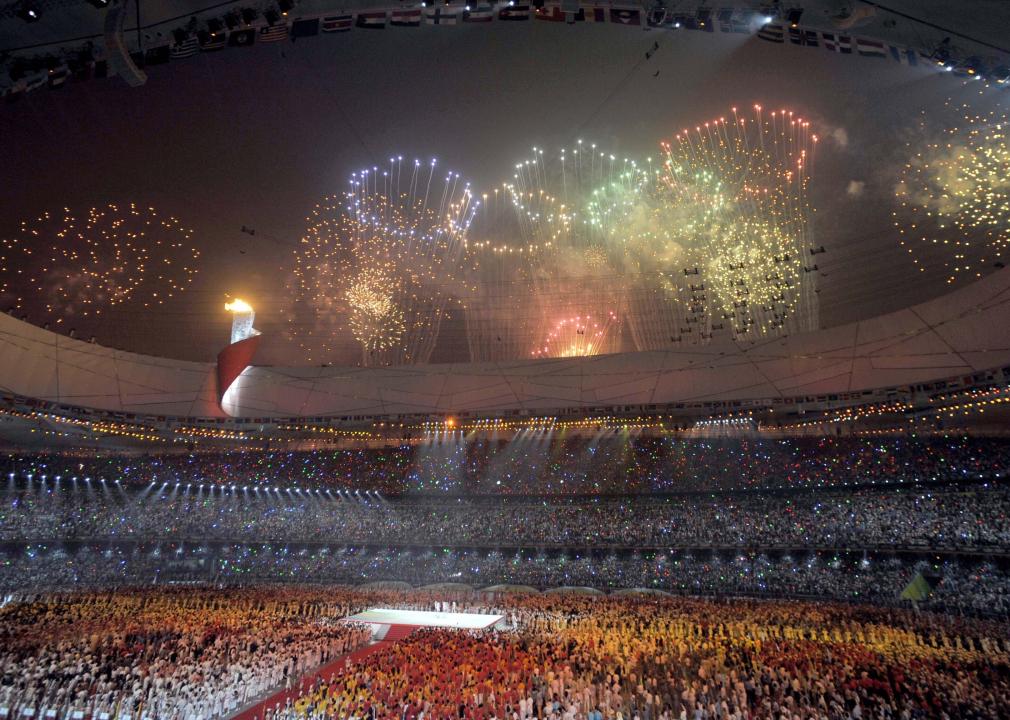
David Ashdown // Getty Images
#2. 2008 Beijing Summer Games
The opening ceremony of the Summer Olympic Games in Beijing, China.
Cost (in 2021 dollars): $52.7 billion
The Beijing Games were the first time the public became aware of how much more money the Olympics cost than how much it brought in. The 2008 Games cost Beijing over $40 billion but only generated $3.6 billion, according to the CFR.
The Wall Street Journal reported that most of that money was spent on infrastructure. It also allowed the city to tout its environmental clean-up efforts, though experts say its push didn’t go far enough. By 2018, many of the venues built for the Games had been abandoned and were no longer being used, similar to the 2004 Athens Games, and human rights commitments were not fulfilled.
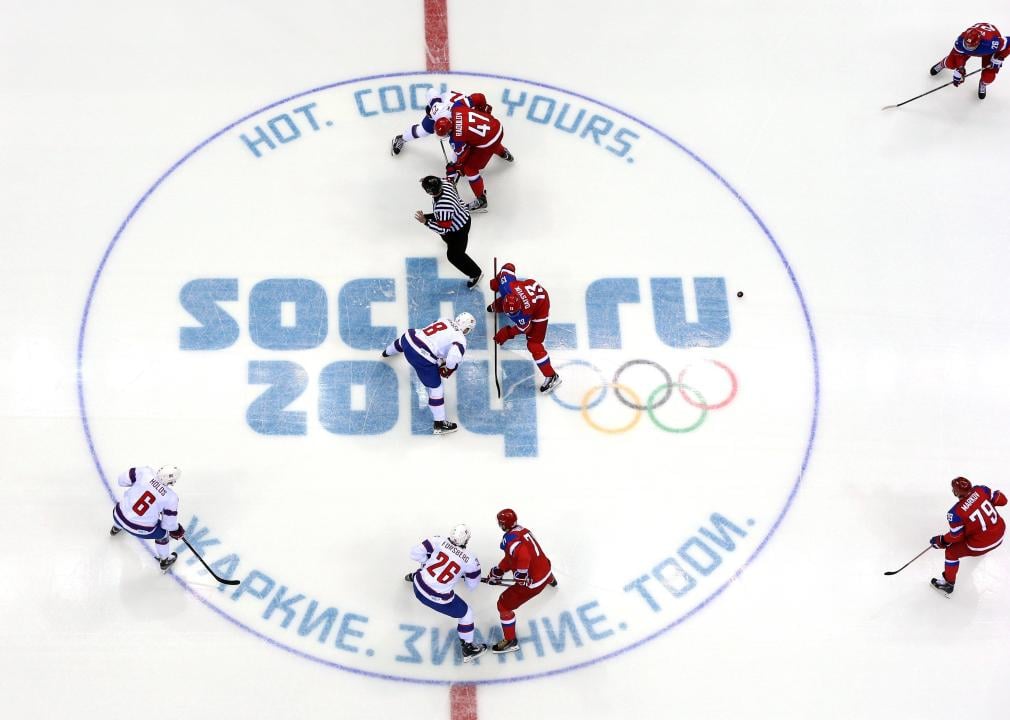
Bruce Bennett // Getty Images
#1. 2014 Sochi Winter Games
Norway faces off with Russia in men’s ice hockey at the Sochi Winter Olympics.
Cost (in 2021 dollars): $59.7 billion
As the most expensive Olympic Games, at nearly $60 billion, the first question that comes to mind: Why were the 2014 Sochi Winter Olympics so costly?
For starters, Russia went above and beyond the basic expenses of the Games. The initial budget was $12 billion, but after expenses on infrastructure across the country, rogue private contracts, and excessive demonstrations like the 40,000-mile torch relay across Russia, the budget ballooned to over $50 billion.
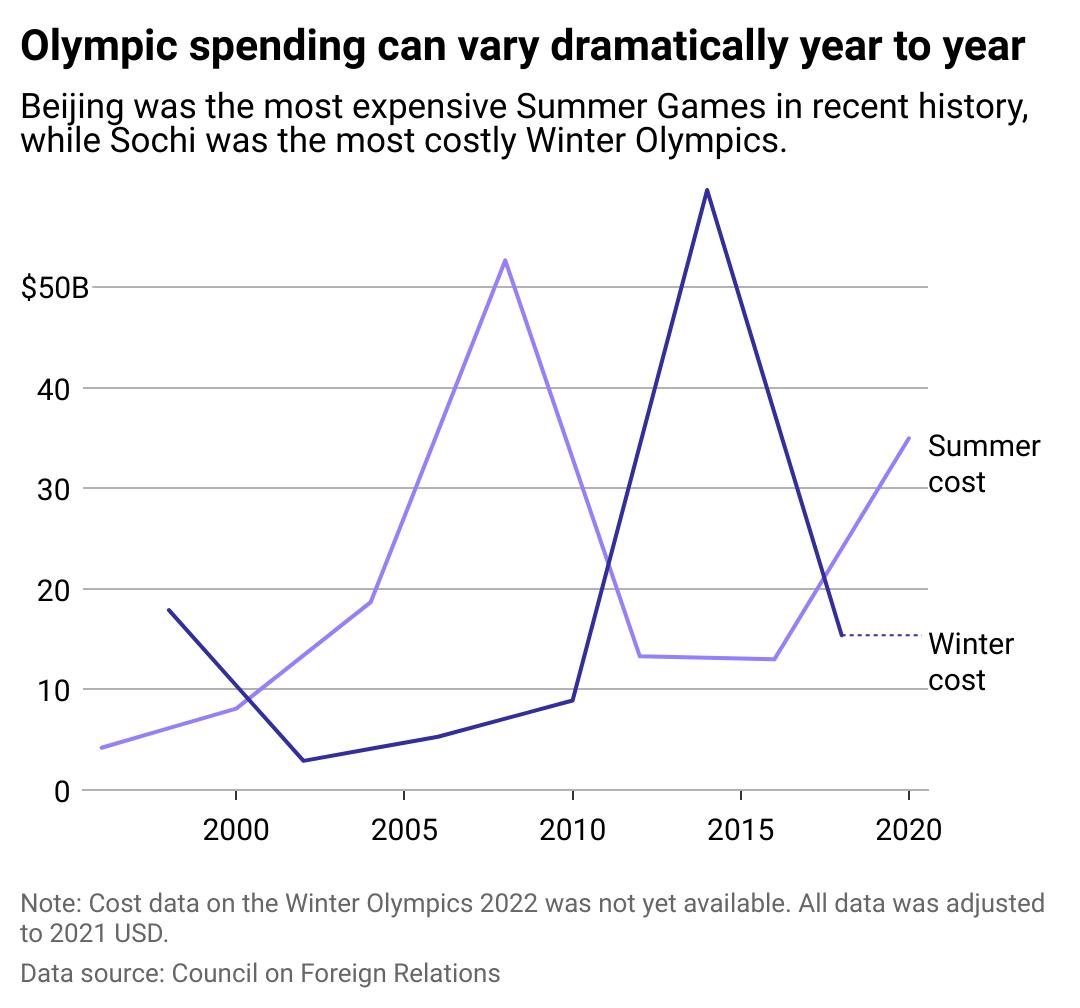
OLBG
Olympic spending hinges on a city’s construction ambitions
A double line chart showing Summer and Winter Olympics cost over time.
Olympic spending from one Games to the next can vary markedly and be influenced by several factors. For context, every Olympics has two budgets: the Organising Committee for the Olympic Games and the Non-Organising Committee for the Olympic Games budget. The OCOG budget is funded by private organizations and the IOC. This fund is also where proceeds from the sale of Olympic broadcast rights go. The Non-OCOG budget is larger and financed by the host country through public and private funds. It pays for infrastructure, such as the construction of competition venues, and operational expenses like security, food, and medical services.
Every Olympic Games since 1960 has exceeded its budget for various reasons, but delayed construction schedules for megaprojects seem to be the initial domino that sets overrun costs into motion since the Games can’t be moved and they operate on fixed deadlines. This was the case for Rio de Janeiro Games (#8 on the list). Even with just 500 days to go before the Olympics, Rio had yet to start on several construction projects. At about the same point in time, the London Games (#7) already had 80% of its venues and infrastructure completed versus only 10% at Rio, according to Reuters. A corruption scandal also delayed private contract payouts.
In addition, the IOC budget only includes operating the Games for 17 days, not expenses that lead up to staging the far-reaching event, according to Andrew Zimbalist, author of three books about the economics of the Olympics. “The number itself is very fungible depending on what you want to include,” Zimbalist told The New York Times.
Despite the questionable economics, many cities do proceed, partially buoyed by construction industries motivated to approve an Olympic bid and its commensurate billions in building projects, as well as political agendas for countries wanting enhanced prestige on the world stage.
Though final figures are still years away from being tallied, the 2024 Paris Olympics seems poised to cost less than in years past. The Paris Olympic and Paralympic organizing committee estimates spending $9.7 billion and expects to break even.
Story editing by Carren Jao. Copy editing by Paris Close. Photo selection by Clarese Moller.
This story originally appeared on OLBG and was produced and
distributed in partnership with Stacker Studio.
